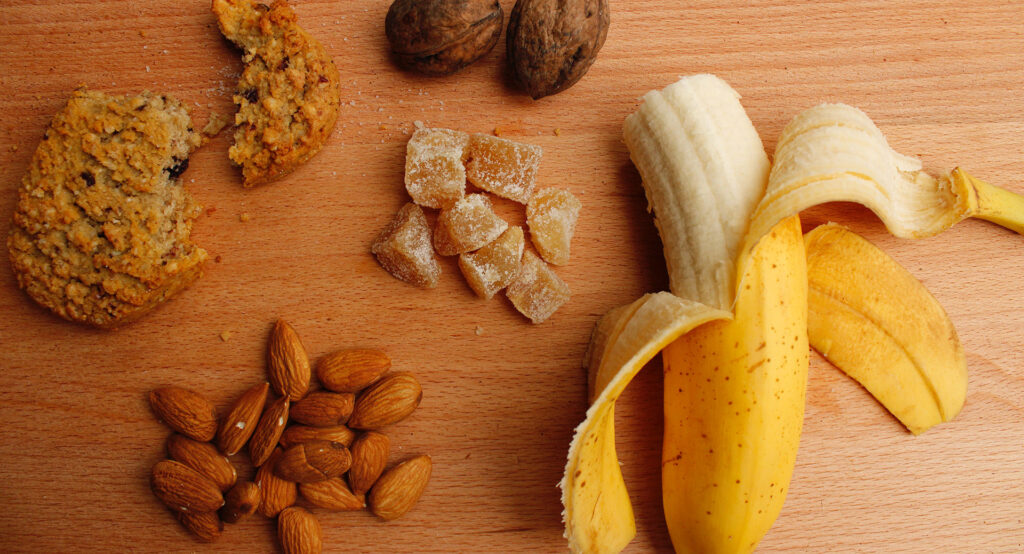High Carbohydrates Foods 10 Fascinating Facts
Carbohydrates are a crucial macronutrient that plays a vital role in providing energy to our bodies. While some may view carbohydrates as a source of weight gain, the right type of carbohydrates can actually be beneficial to overall health. In this article, we’ll explore ten fascinating facts about high carbohydrate foods that you might not know, helping you make informed decisions about your diet. Get ready to have your carb misconceptions challenged!
Carbohydrates are one of the three main macronutrients the body needs, along with protein and fat.
1 They are an essential source of energy and play a critical role in a balanced and healthy diet. In this article, we’ll explore high carbohydrate foods and share 10 fascinating facts about these important nutrients.
From the different types of carbohydrates to their role in maintaining optimal health, get ready to learn all about these fascinating compounds.
High-carbohydrate foods include a wide variety of foods.
2 Such as..
- Whole grains (e.g. brown rice, whole wheat bread).
- Fruits (e.g. bananas, apples, oranges)
- Vegetables (e.g. sweet potatoes, corn, peas)
- Legumes (e.g. lentils, beans, chickpeas)
- Sugary foods such as candy, soda, and baked goods.

When carbohydrates are consumed, they are broken down into glucose in the digestive system.
3 Glucose is then transported to cells throughout the body where it is used for energy production. If there is an excess of glucose, it is stored in the liver and muscles as glycogen.
The body can access these stores when it needs additional energy.
Complex carbohydrates are digested more slowly by the body, providing a steady source of energy over a longer period of time.
4 They also contain more fiber, vitamins, and minerals compared to simple carbohydrates. On the other hand, simple carbohydrates are made up of one or two sugar molecules and are typically found in processed and sugary foods.
They provide a quick source of energy but are less nutritious than complex carbohydrates.
Simple carbohydrates, also known as simple sugars, are broken down quickly by the body and provide a quick source of energy.
5 However, they are often lacking in nutrients and can cause a spike in blood sugar levels. Examples of simple carbohydrates include table sugar, honey, and fruit juice.
While high-carbohydrate diets may increase the risk of some health problems, it is important to note that not all high-carbohydrate foods are unhealthy.
6 Complex carbohydrates, found in whole grains, fruits, and vegetables, are nutritious and provide many health benefits. Additionally, high-carbohydrate diets can be healthy when they are balanced with other macronutrients and consumed in moderation.
It’s all about making smart choices and understanding the role that carbohydrates play in our overall health and wellbeing.
Whole grains, fruits, and vegetables are healthy high-carbohydrate foods that are also rich in other nutrients, such as fiber, vitamins, and minerals.
7 Consuming these foods as part of a balanced diet can help maintain a healthy weight, reduce the risk of chronic diseases, and promote overall health and well-being.
It’s important to choose carbohydrates wisely and aim for a variety of nutrient-dense foods to meet your daily nutritional needs.
legumes are a great source of carbohydrates and protein.
8 They also contain other important nutrients like fiber, vitamins, and minerals. Eating legumes regularly can help improve heart health, manage blood sugar levels, and promote satiety, which may be beneficial for weight management.
Additionally, they are affordable and versatile, making them a great addition to a healthy diet.
Carbohydrates are a primary source of fuel for the body, and they can be particularly important for athletes who engage in endurance activities.
9 When an athlete consumes carbohydrates, they are broken down into glucose, which is stored in the muscles and liver as glycogen. During exercise, the body can quickly access this glycogen to provide energy for the muscles.
Research has shown that consuming high-carbohydrate diets before and during endurance exercise can improve performance and delay fatigue.
The recommended daily intake of carbohydrates varies depending on age, gender, and activity level.
10 However, the Dietary Guidelines for Americans recommend that carbohydrates should make up 45-65% of daily caloric intake.
It’s important to choose healthy sources of carbohydrates and avoid foods that are high in added sugars.





I’ve recently started a site, the information you provide on this site has helped me tremendously. Thanks for all of your time & work. “A creative man is motivated by the desire to achieve, not by the desire to beat others.” by Ayn Rand.